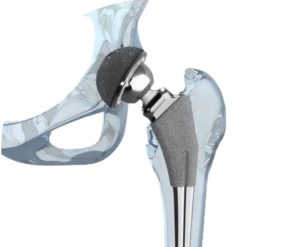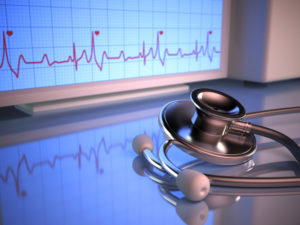You might expect that someone who is injured in a car crash they didn’t cause might be due a bit of sympathy and respect. Guess again. Once the victim leaves the scene of the accident everything changes.
I was just rereading some of my colleague’s posts from this week containing tips for people injured in auto accidents. It struck me as implicit in each post that the victims of car accidents are almost immediately put on the defensive with respect to their claim for injuries and property damage. Counterintuitive as it may seem, I have found this to be the case as well.
If you find yourself injured in an accident, there are several steps you can take to protect yourself. The earlier articles in this series do a great job in listing many of these measures. Wayne’s post included a sort of Top 10 and Rick included a number of key points to keep in mind. As much as lawyers love to argue with each other, I can’t take issue with any of their points.
Instead, I’d like to stress the importance of identifying witnesses and promptly seeking medical care for every symptom. If I had to list the two problems that seem to torpedo otherwise strong cases the most frequently, these would be the two.
A Witness in the Hand Is Worth Two on the Street
Yesterday, my friend Devon Glass wrote about the importance of identifying witnesses and I couldn’t agree with him more. A case without a witness is quite possibly no case at all. Sure, there are times when the physical evidence is enough to indicate fault. But all too often a claim turns on the testimony of those who saw the crash. Remember, in court it is your burden to show that the other driver caused the accident. If that driver points the finger at you and no one else is available to say what happened you may not prevail.
You can help avoid this situation. If you are conscious following an accident, you will probably notice a lot of people nearby. Some of these folks may have seen the accident occur. It’s easy to assume someone will make sure appropriate witness information is noted. Not so!
Some witnesses will only stop long enough to make sure 911 has been called and to see if there is anything they can do to help. If they don’t think they are needed, they will leave even before the police arrive.
A good witness account could mean the difference between your claim being accepted or denied. If you are able, it is extremely important that you get contact information for these people. In the absence of such information, witnesses become increasingly hard or impossible to locate and interview after they leave the scene of the accident.
You also can’t count on the police to get witness information, even from those who are still at the scene when the police arrive. Sometimes the attention of the responding officer(s) is focused on other matters such as traffic control. Other times the police may feel that only one witness needs to be noted. But you can’t afford to risk your claim on just one witness when more are available.
Treatment Delayed is Compensation Denied
Another measure you can take to protect you as an accident victim sounds deceptively simple: go to the doctor, tell the doctor where it hurts!
It is important to talk to your doctor and report all of your symptoms. Many of my clients don’t go to the doctor for days or even weeks following their accident. These folks usually tell me that they were in a good deal of pain but thought they could just “ride it out.” Its only when they don’t get better that they seek medical care and call me.
By the time these folks finally go to the doctor, they have already damaged their claim for compensation. A skillful insurance attorney will use the delay between the accident and the injured person’s first visit to the doctor to imply that the person was either not seriously injured or that the injury actually occurred after the accident.
A similar problem can occur when an injured person does go the doctor shortly after a collision but fails to report all his or her symptoms. I’ve run into this problem many, many times over the years.
An example would be a person who is rear-ended at a stop light. Following the accident this person may have neck pain, back pain, a headache, dizziness and a bump on the knee. Unfortunately there is a tendency among many people to report only the two or three symptoms which seem most painful at the time. However, the most serious injury may not be one of the most painful in the hours or days immediately following the accident.
In our example, the injured person may hurt the most in the neck and back following the accident and only report those injuries to the doctor. Yet it may be that this person’s most serious injury is a tear to the cartilage in the knee. The injured person might not take the minor knee pain seriously until the back and neck pain is better. Only as the person begins to return to normal activity does he or she notice that the minor knee pain is beginning to get worse. By the time our injury victim brings up the knee pain with the doctor several weeks or more may have passed since the accident.
Take Names! Call the doctor! Tell the Doctor Where It Hurts!
So that’s the way to avoid a few of the biggest problems that can arise with your injury claim. Below are links to posts by my colleagues. They discuss these and other steps you can take to protect yourself following an accident.
Being a Client: More Tips To Help Improve Your Case If You’ve Been In An Car Accident, Devon Glass &David Mittleman of Church Wyble, PC in Lansing, Michigan
Presumed Guilty: How to Avoid Having Insult Added to Injury When You’ve Been Hurt in a Car Crash, Pierce Egerton of Egerton & Associates P.A. in North Carolina
What would a caveman bring to meet with the lawyer?, Steve Lombardi of The Lombardi Law Firm in Des Moines Iowa
I was in an automobile accident. What should I do? Ten Tips For Hawaii Drivers, Wayne Parsons of The Parsons Law Firm in Hawaii
Car Accident Injury Client: What Makes the Case Good or Bad? (The Collision & Medical Care), Rick Shapiro of Shapiro, Cooper, Lewis & Appleton, P.C. from Virginia and North Carolina
Michael Bryant of Bradshaw & Bryant PLLC in Waite Park, Minnesota will post an article on this topic tomorrow.










3 Comments
Steve Lombardi
Straight talk with concrete advice strangely simple and yet true not just in North Carolina but also true in Iowa, Michigan, Minnesota, Virginia and Hawaii. I wonder why that is? I love the saying, A Witness in the Hand Is Worth Two on the Street. Can I quote you on that? Now the one question Wayne has yet to answer is whether members of the Hawaii Bar are allowed to wear grass skirts in Court?
Mike Bryant
I was sitting in a deposition this week thinking about the importance of witnesses. You hit it right on the head. In that case there was a ton of them, newspaper and TV reports. Despite this the truck driver comes up with a whole new version. Without all of the disinterested statement there might have been a fight on the issue. Now, there were other holes in the story, but the reality is that people need to get names and numbers at the time.
Devon Glass
I have similar issues with some of my clients about delayed treatment or conditions that were not reported to a doctor when it first happened. One thing to remember is that if you don't report a medical condition to your doctor, it does not exist. This is another way the insurance industry and jurors will say you are lying, if you really hurt your head/back/knee, whatever, you would have reported it. However, if you broke your arm, the pain in other areas may not be the most important thing. It's amazing how people will hold it against you if your doctor does not follow up on complaints you make to them. Like it's somehow your fault the doctor didn't send you for further testing or treatment.
Comments for this article are closed.